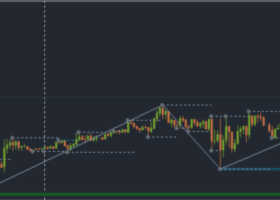
While a gradual pace of increases in the fed funds rate is appropriate, Boston Federal Reserve Bank President Eric Rosengren said Monday financial markets are too pessimistic in their view of rate increases over the next few years.
"While I believe that gradual federal funds rate increases are absolutely appropriate, I do not see that the risks are so elevated, nor the outlook so pessimistic, as to justify the exceptionally shallow interest rate path currently reflected in financial futures markets," Rosengren said in a speech prepared for the American Savings Foundation Distinguished Lecture at Central Connecticut State University.
Copy signals, Trade and Earn $ on Forex4you - https://www.share4you.com/en/?affid=0fd9105
Rosengren, a voter this year on the policymaking Federal Open Market Committee, elaborated on an idea he put forth in an April 4 speech on cyber and economic risks. He also warned Monday of the need to hike faster if the FOMC waits too long to raise rates, sounding like some of his more hawkish colleagues.
"In my view the very shallow path of rate increases implied by financial futures market pricing would likely result in an overheating that necessitates the Fed eventually raising interest rates more quickly than is desirable, which could endanger the ongoing recovery and continued growth," he said.
Federal funds futures currently reflect the expectation of approximately one-quarter of a percentage point increase in each of the next three years, he said. On Monday, futures showed only about 12% expected rate hike at the June meeting, and the odds of a hike at the December meeting were only about 50%.
The fact that the federal funds futures market does not price a 25 basis point increase in the federal funds rate with near-certainty until 2017 "is even more striking," Rosengren said. "In my view, such dour interest rate projections do not seem consistent with the outlook for the economy that I and many others share."
And it's not just the futures markets that are too pessimistic in their view of the funds rate path. The Survey of Primary Dealers "reports a rising probability of seeing no federal funds rate increase this year," Rosengren pointed out. The March 21 survey indicated "somewhat more than a 20% probability of no change this year."
Rosengren points out market expectations for increases in the fed funds rate is at odds with the economic outlook of many private forecasters, which "envision a much healthier U.S. economy than is implied by that unusually shallow path of the funds rate, and many of the major private forecasters expect short-term rates to rise more rapidly than implied by financial futures."
It's also not consistent with Rosengren's outlook for the economy, which calls for GDP growth slightly above potential, "and a continued slow decline in the unemployment rate," he said despite weakness in the first quarter.
This weakness, which is reflected in a 0.3% GDP reading in the Atlanta Fed's GDPNow forecast, "been a consistent pattern in recent years," he said, "and to date, that weakness has generally been offset in subsequent quarters, as the economy has continued to improve slowly."
Plus, he said, with core PCE inflation rate now at 1.7%, inflation is "much closer to the Federal Reserve's 2% target than were the core PCE readings in 2015."
March's employment report, which showed a monthly job gain of 215,000 and an increase in the labor force participation rate, "is supportive of a more optimistic reading of the GDP numbers."
The unemployment rate in March ticked back up a basis point to 5.0% from 4.9% in February, in part because more people were coming back into the labor market. Rosengren said this is close to his estimate for an unemployment rate that is consistent with full employment, 4.7%, and he worries about overheating.
"My concern is that given these conditions, an interest rate path at the pace embedded in the futures markets could risk an unemployment rate that falls well below the natural rate of unemployment," he said.
"We are currently at an unemployment rate where such a large, rapid decline in unemployment could be risky, as an overheating economy would eventually produce inflation rising above our 2% goal, eventually necessitating a rapid removal of monetary policy accommodation."
Rosengren added he would prefer the FOMC "not risk making the mistake of significantly overshooting the full employment level, resulting in the need to rapidly raise interest rates - with potentially disruptive effects and an increased risk of a recession."
Unfortunately, he added, "modestly slowing down the economy is difficult."
In previous episodes, when the unemployment rate fell well below the estimates of the natural rate of unemployment, monetary policy "needs to react to try to modestly slow the economy," he said. But he shows that in these instances, the unemployment rate "subsequently rose significantly above the natural rate of unemployment."


